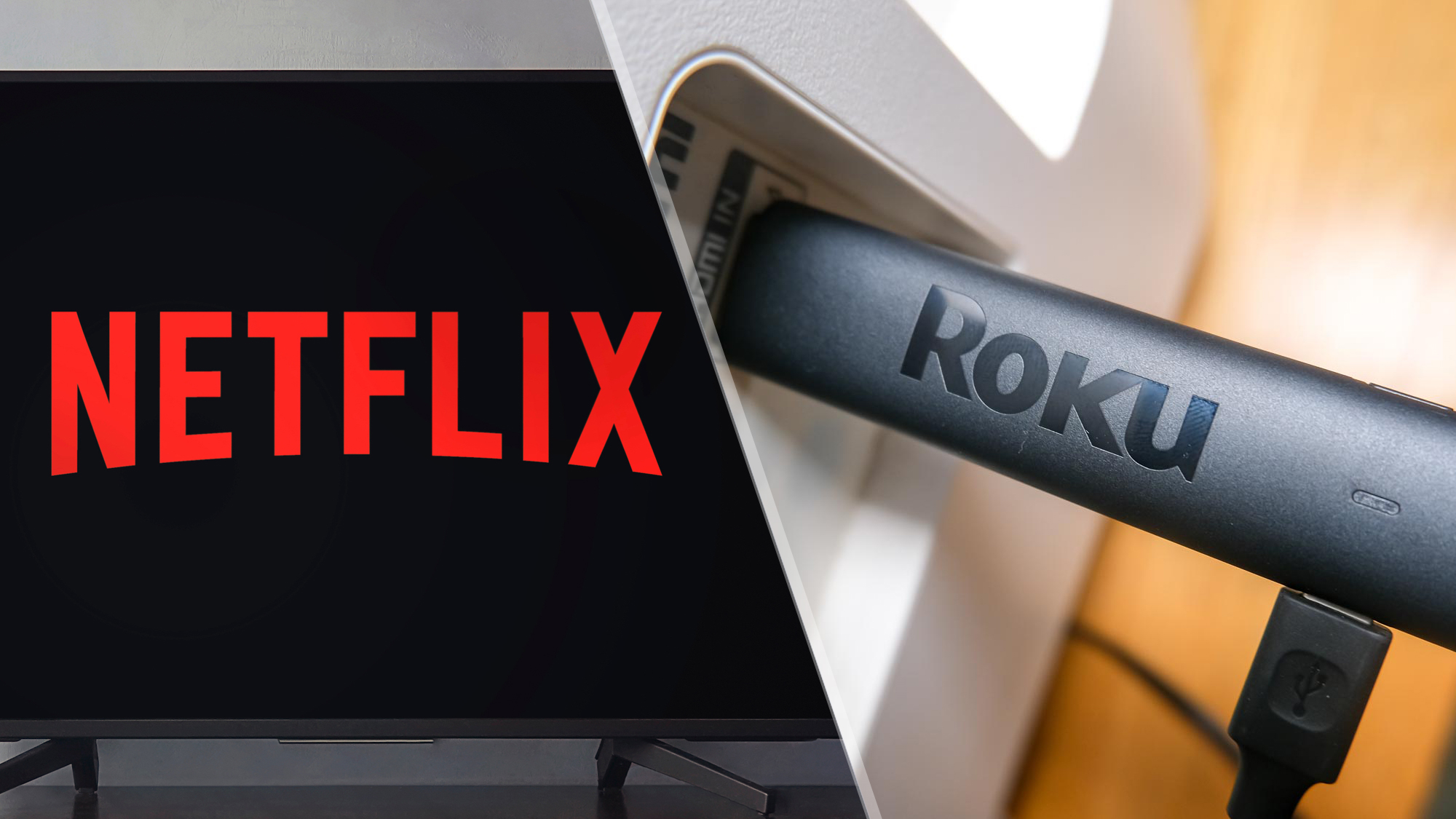Netflix rumored to buy Roku — what it could mean for you
This could be big

Well isn't this interesting. Netflix is supposedly thinking about buying Roku. Yes, two titans of the streaming wars — one of the best streaming services and the maker of the best streaming device — could become one.
In this era of super-mergers, we're not writing it off, especially in the aftermath of the Warner Bros. Discovery merger that's going to lead to a super-service that combines HBO Max and Discovery Plus.
So, the news: according to an Insider report, Roku employees are internally speculating that Netflix is going to buy their company. This, according to Yahoo Finance, led to a "halt on employee training of vested stock options," (though that isn't necessarily tied to any potential deal). And Roku's stock price has gone up in the meantime.
Which brings us to the pertinent question: what does this mean for us? I mean, aside from those who own stock in either company. Here are the potential upsides and downsides for consumers when it comes to a Netflix potentially buying Roku.
Why Netflix buying Roku could be bad for customers
We love Roku devices, and part of our fondness for its streaming sticks and other hardware (as referenced above, the Roku Streaming Stick 4K is the best of the bunch) is due to how Roku doesn't pick sides. In a world of streaming wars, Roku is a veritable Switzerland. Only rarely does a dispute lead to a problem, as happened with Roku and YouTube TV last year.
For the most part, most every other streaming device is a gateway to content created or marketed by its owner. The Fire TV Sticks, TVs and Cube are all promoting Prime Video and Amazon-owned content left and right. The Chromecast with Google TV has a dedicated YouTube button and YouTube TV was one of the first apps it integrated into its Live section. And Apple? Well, the Apple TV 4K is also kinda non-partisan, but at its $179 price it better be (but the TV app has a whole tab for Apple TV Plus shows and movies).
If Netflix bought Roku? Potentially, we could see Roku remotes favor the branded Netflix button over those of competitors, and the Roku interface could be filled with ads for Netflix content (just how Fire TV devices are is). Roku devices already have a relatively light ad load, and we're almost worried that Netflix would risk that.
Sign up to get the BEST of Tom's Guide direct to your inbox.
Get instant access to breaking news, the hottest reviews, great deals and helpful tips.
The potential good news for Netflix customers
Buying Roku could mean that Netflix's library grows with the content that Roku has either bought (RIP Quibi) or is creating. Depending on how fast the acquisition could happen, this could make the upcoming Weird Al biopic starring Daniel Radcliffe a Netflix exclusive.
Roku is also partnering with chefs Emeril Lagasse and Martha Stewart on new shows, and getting new seasons of Quibi shows such as Die Hart season 2 and Most Dangerous Game season 2.
That said, Roku's content is already free, it's just hidden in The Roku Channel app, where many might not be looking to find new shows.
Outlook: This doesn't look or feel good
Honestly, we don't see much upside to Netflix buying Roku. Roku devices rule because they feel more like something you own than a device used to market a specific company's content to you.
That could change if Netflix buys the streaming device company. So, we'll keep our eyes on this for updates.
Next: In other streaming news, we expect South Park: The Streaming Wars 2, and we can explain why. Also, one of the best films of 2022 is finally online — and it's at 95% on Rotten Tomatoes.

Henry is a managing editor at Tom’s Guide covering streaming media, laptops and all things Apple, reviewing devices and services for the past seven years. Prior to joining Tom's Guide, he reviewed software and hardware for TechRadar Pro, and interviewed artists for Patek Philippe International Magazine. He's also covered the wild world of professional wrestling for Cageside Seats, interviewing athletes and other industry veterans.
